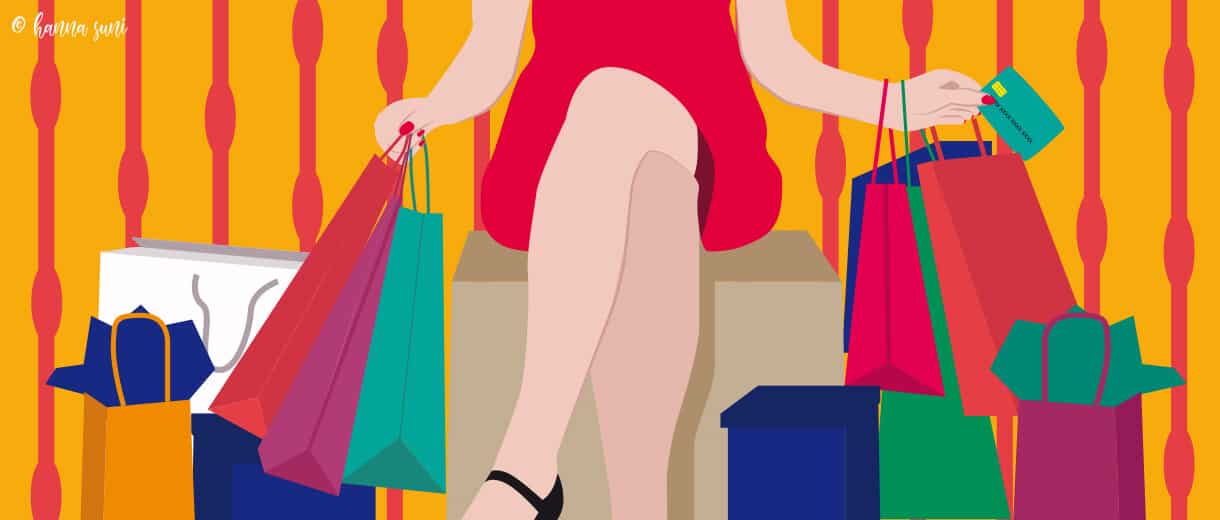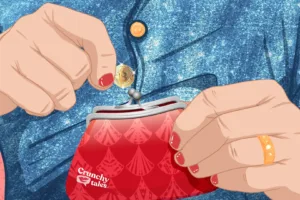Are You An Emotional Spender? Get Back Control Of Your Money
Life ebbs and flows. It definitely wasn’t a straight line to midlife, although it sure would have been nice. It got messy with events you couldn’t have imagined in your 20s. Most, if not all, women carry money stories from childhood, or life events, that created an unhealthy relationship with their finances.
When your finances are headed for troubles
Your money is more than budgets, spreadsheets and the latest investment strategy, though. It’s about the lifestyle you crave for midlife and beyond. You and your money go together like a hand in a glove and an unhealthy money mindset can lead you to make bad financial decisions. That’s why we’re going to look at 10 signs that indicate you may have an unhealthy relationship with your money and how to start the healing process.
Expenses that are out of control
Many of us have bought a magazine or chocolate bar on impulse at the checkout from time to time. Out of control expenses, though, are different. These are the continual bright, shiny objects that keep us distracted from following a spending plan over the long term.
Chronic underearning
Chronic underearners are those with high-level education and skills who intentionally keep themselves in positions they are grossly overqualified for, thereby earning much less than their skills would demand.
Shopping addiction
Deprivation is when basic needs are not met for sustained periods of time. It creates a wound, which if not healed when we are adults, reveals itself as a state of living in constant emptiness. Some people use shopping in an attempt to fill the void, come home with the packages and are still not feeling fulfilled.
Making do
All of us have had to “make do” from time to time. Continually making do is different than being frugal, though. For example, even though my grandparents had to “make do” during World War II because of numerous shortages, they carried on making do decades later when money was plentiful and shortages no longer existed.
Never having enough
The opposite of making do is the feeling of never having enough. Not to be confused with overspending, this is where we may feel that regardless of what we have in the bank or investments, it’s still not enough to help us feel secure.
Inability to save
You’ve probably heard the expression: “money that burns a hole in one’s pocket.” Regardless of how much money comes in, this is where the individual simply HAS to spend it.
Denying there is a problem
It’s hard to admit we may have an unhealthy relationship with our money because there can feel like a lot of shame with that. That is not the same thing as someone who is in denial about their money issues.
Covering up behaviours
An example of this is hiding excessive spending from a spouse or partner. A survey conducted by Money Magazine found that 22% of married people admitted to spending money they didn’t want their spouses to know about. The types of purchases they were most likely to conceal differed for men and women. Husbands were more likely to hide spending on electronics or hobbies, while wives typically concealed purchases of clothing, shoes, and gifts for friends and family.
Compulsive Credit Card Use
The reality of life is that we need a good credit score for things like renting an apartment or taking out a loan to buy a house. Credit cards, when used with discipline, can help us achieve a good credit score. Overuse of credit cards, though, comes partly from when someone is living a lifestyle that costs more than their income provides for.
Living in a Financial Fog
We’ve all seen the picture of the ostrich with its head in the sand. This is what it’s like living in a financial fog. FOG — fear, obligation, guilt — attacks sparkling minds and blocks healthy views on money. Money FOG slows the progress you need to grow, keep and distribute wealth.
Healing Your Relationship with Money
In order to get comfortable with tracking your income, expenses and cash flow it’s important to work one baby step at a time because you’re learning to understand and untangle the emotions that are driving your deep-seated money patterns. There are four stages to the process of healing your relationship with money.
- Understanding: What are the childhood messages that shape your beliefs about money? What are the life events that may have caused financial trauma?
- Forgiveness: We’ve all made financial mistakes. Forgive yourself and others from the past with the closure you need to move forward.
- Clarity: Similar to healthy, lifestyle changes that start with nutrition tracking, gaining clarity on your money starts with tracking everything you earn and everything you spend. Cashflow is key.
- Simplicity: The word “budget” makes me cringe, too, so let’s create a simple spending plan instead. This will help you to see this process in a different light in order to create the stabilization your situation needs. Finally, we’re able to get relief from the anxiety of financial stress.
Remember, nobody does it right all the time. You can develop the skills you need to heal your relationship with money and are absolutely worthy to live the life you crave.





